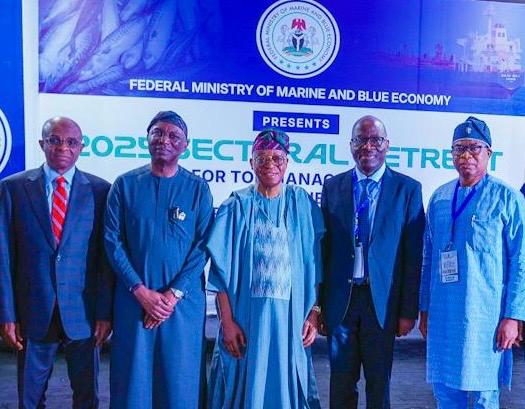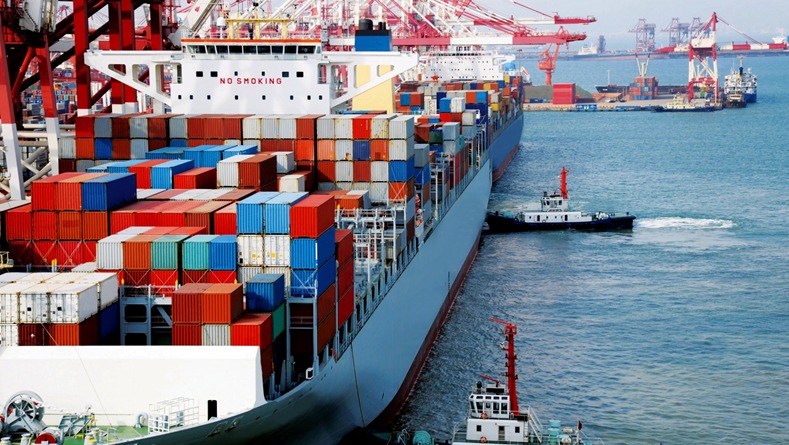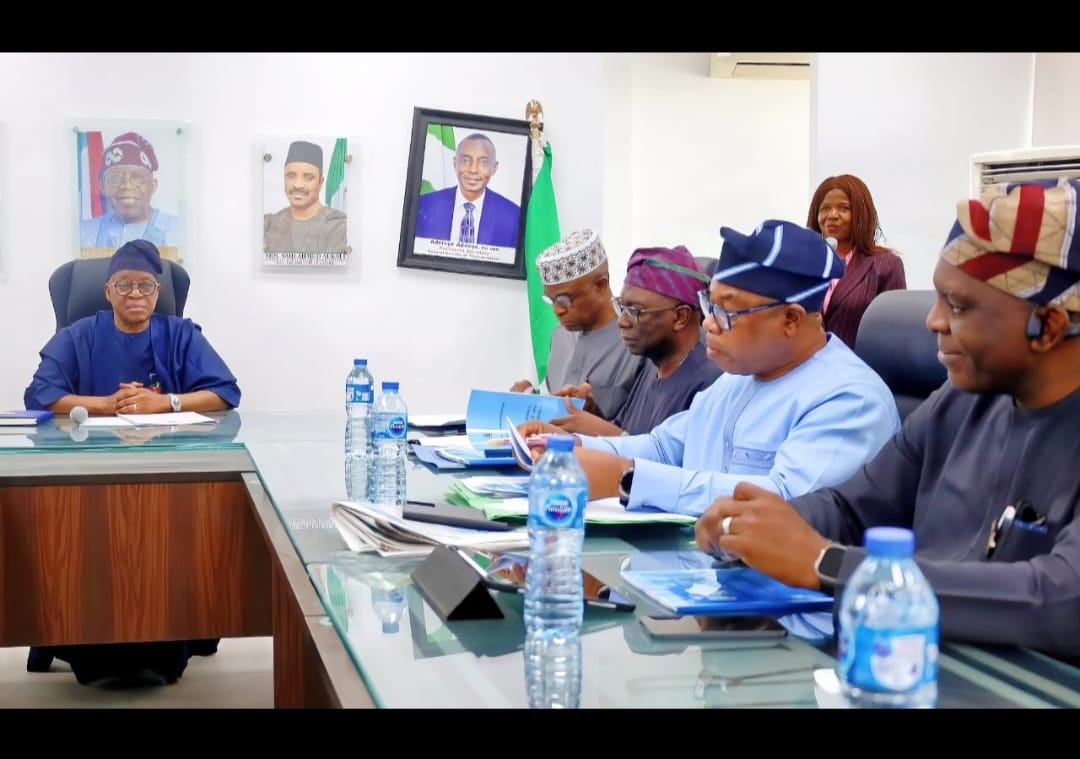A News Analysis by Diana Omueza, News Agency of Nigeria (NAN)
Nigeria’s vast coastline and abundant marine resources remain largely untapped, in spite of their enormous potential in the blue economy.
Analysts argue that, if properly harnessed, the sector could drive substantial economic growth and sustainability.
They believe Nigeria stands to benefit greatly from the blue economy, unlocking new opportunities for prosperity.
According to the World Bank, the blue economy ranks as the seventh largest in the world, valued at 1.5 trillion dollars annually, with projections to double to 3 trillion dollars by 2030.
Recognising this potential, President Bola Tinubu established the Ministry of Marine and Blue Economy in August 2023.
Led by Mr Adegboyega Oyetola, the ministry is tasked with ensuring that Nigeria’s marine resources are responsibly managed to improve citizens’ livelihoods while preserving the country’s coastal ecosystems.
Oyetola, the first Minister of Marine and Blue Economy, has emphasised that fully harnessing the sector could lift many Nigerians out of poverty and create widespread prosperity.
However, he stressed that achieving this requires innovation, collaboration, and adequate funding to develop a thriving industry that benefits present and future generations.
To support this goal, he recently presented a capital budget proposal of 11.77 billion naira and an overhead budget of 453.86 million naira for the ministry’s 2025 budget to a joint committee of the National Assembly.
During the budget defence, he noted the need for greater financial allocation, as substantial capital investment is essential for the ministry to fulfil its mandate.
“The proposed total of 11.77 billion naira and an overhead of 453.86 million naira though inadequate, is presented for your kind consideration,” he told the committee.
Oyetola outlined several pressing issues within the sector, including deteriorating infrastructure, silted river courses, inadequate fish production, and a shortage of river transport vessels, all requiring urgent intervention.
To address these challenges, he proposed key initiatives such as replacing outdated wooden boats with standardised crafts, distributing life jackets to riverine communities, and conducting capital dredging in major rivers.
He stressed that all projects are aligned with government capital budgets to ensure timely execution and enhance food security.
However, he warned that insufficient funding would hinder the ministry and its agencies from sustaining the progress made over the past year.
Chairman of the Senate Committee on Marine Transport, Mr Wasiu Eshinlokun, acknowledged that the proposed budget seemed inadequate for capital-intensive projects such as dredging.
He assured that the proposal would be reviewed by the appropriation committee to ensure appropriate funding.
Meanwhile, he advised the minister to incorporate long-term, high-cost projects into the 2026 budget for better financial planning.
Speaking at a stakeholders’ workshop in Lagos, Oyetola also called for the development of a National Policy on Marine and Blue Economy to establish a sustainable framework for growth.
He noted that beyond funding, Nigeria requires a comprehensive national policy to maximise its extensive marine resources.
He explained that such a policy would strengthen the sector, create jobs, promote sustainability, and drive economic growth through industries like fisheries, aquaculture, maritime transport, and tourism.
“We aim to deliver a national policy document that clearly outlines the roadmap for developing our blue economy.
“We want to create jobs, attract private sector investment, and deliver inclusive prosperity to all Nigerians, particularly our youth and women.
“The National Policy we seek must be comprehensive enough to address all challenges and unlock the sector’s full potential.
“A robust policy will enable us to tackle these issues through a framework aligned with international best practices while safeguarding our marine resources for future generations,” he added.
Oyetola emphasised that with proper funding and a well-structured policy, the blue economy presents a transformative path for countries seeking to balance economic growth with environmental sustainability.
He maintained that Nigeria is no exception.
The minister also highlighted significant progress in maritime governance, including Nigeria’s three-year record of zero piracy incidents, the ratification of key international protocols, and advancements in port modernisation.
These achievements, he noted, provide a strong foundation for the sector’s continued growth and the successful implementation of the proposed policy.
Additionally, he reiterated Nigeria’s commitment to combating illegal, unreported, and unregulated (IUU) fishing, which poses a major threat to the country’s fisheries and aquatic ecosystems.
He also reaffirmed Nigeria’s bid for Category C membership in the International Maritime Organisation (IMO) to enhance its influence in global maritime governance.
Oyetola expressed optimism that a national policy would significantly impact job creation, youth empowerment, and poverty alleviation, particularly in coastal communities.
He stressed that the blue economy has immense potential to create wealth for Nigeria’s growing youth population, drive innovation, and foster sustainable development, provided the right measures are implemented.
Supporting this vision, Mr Olufemi Oloruntola, Permanent Secretary of the Ministry of Marine and Blue Economy, commended the minister’s commitment to shaping a maritime policy that allows diverse stakeholders to contribute to its development.
He emphasised that their participation is crucial in advancing the marine and blue economy for national growth.
Experts and industry leaders have also praised President Bola Tinubu’s Renewed Hope Agenda, particularly the creation of the ministry to unlock Nigeria’s marine potential for economic expansion.
Mr Akutah Pius, Executive Secretary and Chief Executive Officer of the Nigerian Shippers’ Council (NSC), described the Ministry of Marine and Blue Economy as pivotal to achieving Nigeria’s National Gross Domestic Product (GDP) targets.
During a visit to Tin-Can Island Container Terminal (TICT) and Port and Cargo Handling Services (PCHS) in Lagos, Pius expressed confidence that the sector could contribute to the federal government’s objective of increasing GDP to 1 trillion dollars by 2026.
He also believes it could help achieve the goal of reaching 3 trillion dollars by 2030.
However, he cautioned that achieving this goal requires comprehensive reforms to enhance port efficiency.
Meanwhile, Vice-Admiral Emmanuel Ogalla, Chief of the Naval Staff (CNS), underscored the importance of Nigeria’s underwater resources at the 14th Trans-Regional Seapower Symposium in Venice, Italy.
He noted that over 85 per cent of Nigeria’s trade volume relies on these resources, which include diverse aquatic species and significant non-living assets such as 36 billion barrels of crude oil and 182 trillion cubic feet of gas reserves.
Speaking on “Preserving the Underwater – the Secure and Sustainable Use of the Underwater”, Ogalla referenced the African Integrated Maritime Strategy (AIMS), which recognises these resources as critical to Africa’s blue economy.
He added that Nigeria’s maritime interests span internal waters, the territorial sea, the Exclusive Economic Zone (EEZ), and the Gulf of Guinea.
“The Nigerian Navy’s participation in the symposium showcased its success in eliminating piracy from Nigerian waters since 2022, leading to Nigeria’s removal from the International Maritime Bureau’s list of Piracy-Prone States,” he said.
Ogalla stressed the importance of sustainably managing marine resources, as they are key drivers of economic growth and food security.
He reaffirmed Nigeria’s role in maritime security, particularly in the Gulf of Guinea, and detailed how the Nigerian Navy’s Total Spectrum Maritime Strategy—which integrates surveillance, rapid response, and law enforcement—has helped maintain the country’s piracy-free status since March 2022.
To further advance Nigeria’s marine sector, experts, including African shipowners, have urged the swift implementation of a national maritime policy to guide sustainable development.
Ms. Funmi Folorunsho, Secretary-General of the African Shipowners Association, asserted that a well-structured policy would provide a clear roadmap for growth and position Nigeria as a leading player in the global marine economy.
Similarly, Mr Abdussamad Dasuki, Chairman, House Committee on Shipping Services, reaffirmed the 10th National Assembly’s commitment to working closely with the Ministry of Marine and Blue Economy.
As Nigeria strives to harness its blue economy, stakeholders emphasise that government support, private sector collaboration, and adequate funding are essential.
These factors will be key to unlocking the sector’s full potential while preserving coastal ecosystems. (NANFeatures)






